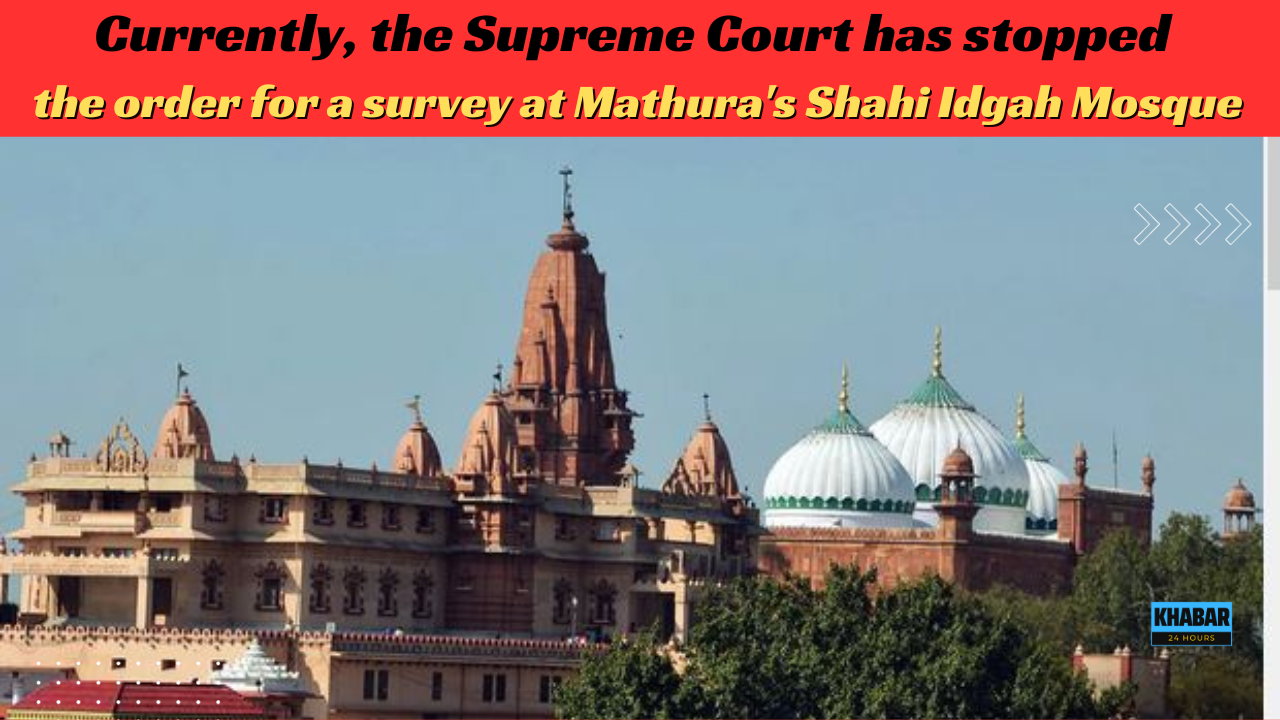Similar to the survey carried out at the Gyanvapi Mosque in Varanasi, the high court approved the examination conducted by a commissioner appointed and supervised by the court.
Today, the Supreme Court temporarily halted a decision from the Allahabad High Court permitting a court-monitored survey of the 17th-century Shahi Idgah Mosque in Mathura, Uttar Pradesh. Last month, the high court, similar to the approach taken at the Gyanvapi Mosque in Varanasi, approved the survey conducted by a court-appointed and monitored advocate commissioner.
The Supreme Court, specifically Justices Sanjiv Khanna and Dipankar Datta, raised concerns about the lack of clarity in the application submitted to the high court for appointing a court commissioner for the survey. The Supreme Court emphasized the need for a specific purpose in the application, stating that a vague request cannot leave everything for the court to address.
The Supreme Court was considering a petition filed by the Muslim party, challenging the high court’s decision to permit a survey of the mosque by a commissioner.
Hindu groups assert that the mosque stands on the birthplace of Lord Krishna and have requested a survey. Although a local court acknowledged this demand in December last year, the Muslim side objected in the high court.
Additionally, the Hindu party filed a petition in a Mathura court, seeking complete ownership of the disputed 13.37 acres of land. They claim that the centuries-old mosque was constructed by demolishing the earlier Katra Keshav Dev temple, allegedly under the orders of Mughal emperor Aurangzeb.
The petitioners argue that carvings of lotuses on certain mosque walls, along with shapes resembling ‘sheshnag,’ the snake demigod in Hindu mythology, serve as evidence. They contend that these features indicate the mosque was constructed on the site of the temple.
The Muslim party previously tried to reject the petition by referencing the Places of Worship Act of 1991. This law preserves the religious status of any place of worship as it existed on August 15, 1947.

